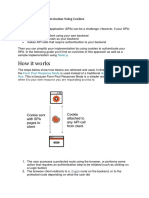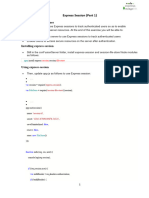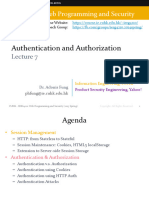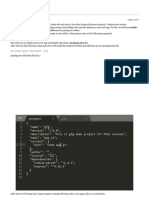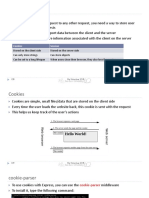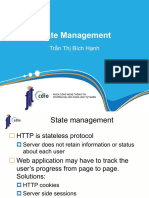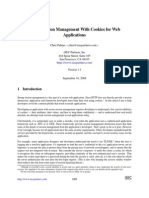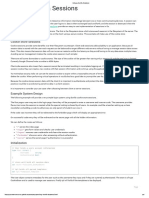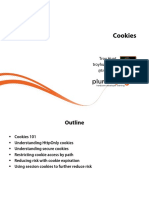0% found this document useful (0 votes)
24 views2 pagesExercise 15 - Using Cookies
This document discusses using cookies for authentication in an Express application. It explains how to set up the application to send signed cookies upon successful authentication and parse cookies from incoming requests. The cookie-parser middleware is used to parse cookies stored in the request header. The middleware signs cookies containing the username which are checked with each request to confirm authentication without requiring further login.
Uploaded by
Le Thi Thanh Phuong (K16 DN)Copyright
© © All Rights Reserved
We take content rights seriously. If you suspect this is your content, claim it here.
Available Formats
Download as DOCX, PDF, TXT or read online on Scribd
0% found this document useful (0 votes)
24 views2 pagesExercise 15 - Using Cookies
This document discusses using cookies for authentication in an Express application. It explains how to set up the application to send signed cookies upon successful authentication and parse cookies from incoming requests. The cookie-parser middleware is used to parse cookies stored in the request header. The middleware signs cookies containing the username which are checked with each request to confirm authentication without requiring further login.
Uploaded by
Le Thi Thanh Phuong (K16 DN)Copyright
© © All Rights Reserved
We take content rights seriously. If you suspect this is your content, claim it here.
Available Formats
Download as DOCX, PDF, TXT or read online on Scribd
/ 2
